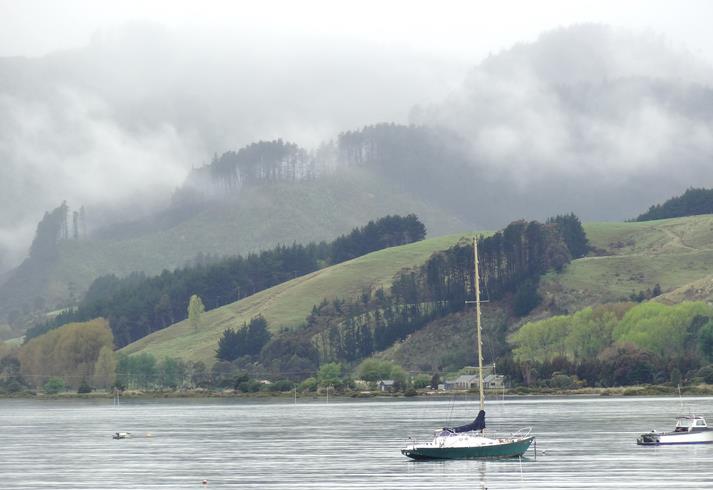
New $650,000 investment on offer for managing invasive marine species
by Clean Below? Good to Go 15 Dec 2021 15:58 NZDT
15 December 2021

Boating and aquaculture co-exist at Te Kouma harbour, Coromandel © Getty Images
The Ministry for Primary Industries (MPI) is investing in research to advance treatment options for invasive marine pests and support growth of New Zealand’s aquaculture industry. Applications for funding close on 10 February 2022.
Biosecurity New Zealand recently commissioned the Cawthron Institute to review the global state of knowledge on treatments that can be used on marine pests. Unsurprisingly, this work identified some considerable gaps, with very few treatments known to be effective for use at the scale of a port or marina.
Following this review, a multidisciplinary team from across MPI are pleased to announce that a research programme of work has been approved to address some of these gaps. $650,000 is available over the next 4 years to deliver treatment options to improve marine pest management.
A particular focus of the research will be developing treatments for use when a new invasive marine weed or pest is detected, to enable successful control and eradication efforts. Managing incursions of non-indigenous species in marine environments has most commonly been done using hand removal by divers, which can be an effective, but expensive option. Diving also has many safety limitations, including depth and dive duration, and search efficacy is highly dependent on water and weather conditions.
"We're really excited to be initiating this work, as the lack of effective, efficient and practical marine pest treatments has always limited how we deal with marine pests" says Tim Riding, MPI's project lead. "By testing promising treatments in real-world situations, at the hectare scale for incursion responses, and at the tonne scale for managing pests of aquaculture, we are confident we can make solid improvements in the management of marine pests"
"This research will complement traditional diver-based approaches, and we are expecting the treatments developed will help us immensely when faced with new incursions of marine pests”
The second focus of the research will be finding treatments to help shellfish farms deal with hitchhiker pests, while maintaining the good health of their stock. This has traditionally been challenging, as the effective treatment of any pests attached to the shellfish needs to not damage the shellfish themselves.
As a key partner, Aquaculture New Zealand will be closely involved with this research. "We recognise how important biosecurity is to support the aquaculture industry to grow and enhance the sustainable production of New Zealand seafood, so we're highly supportive of this project," says Aquaculture New Zealands Technical Director, Dave Taylor. "We will be working with BNZ, the researchers and shellfish farmers to ensure the outputs of the research are effective against pests, and most importantly, practical and implementable at the farm scale"
A ‘request for proposals’ to undertake the research has recently been released onto the government procurement website GETS | Ministry for Primary Industries - Marine Biosecurity Pathways Management: Efficacy of treatments for shellfish movements and incursion response. Appropriately qualified researchers are encouraged to apply for this funding, with applications closing on the 10th of Feb 2022. MPI are hoping to have a research provider appointed and starting the work in March 2022.
The literature review outlining the current knowledge of marine biosecurity treatment options is also available from the MPI website mpi.govt.nz/dmsdocument/48580).
If you are interested in keeping updated with the outputs of the research, please email and we will keep you in the loop as we progress through this exciting piece of work